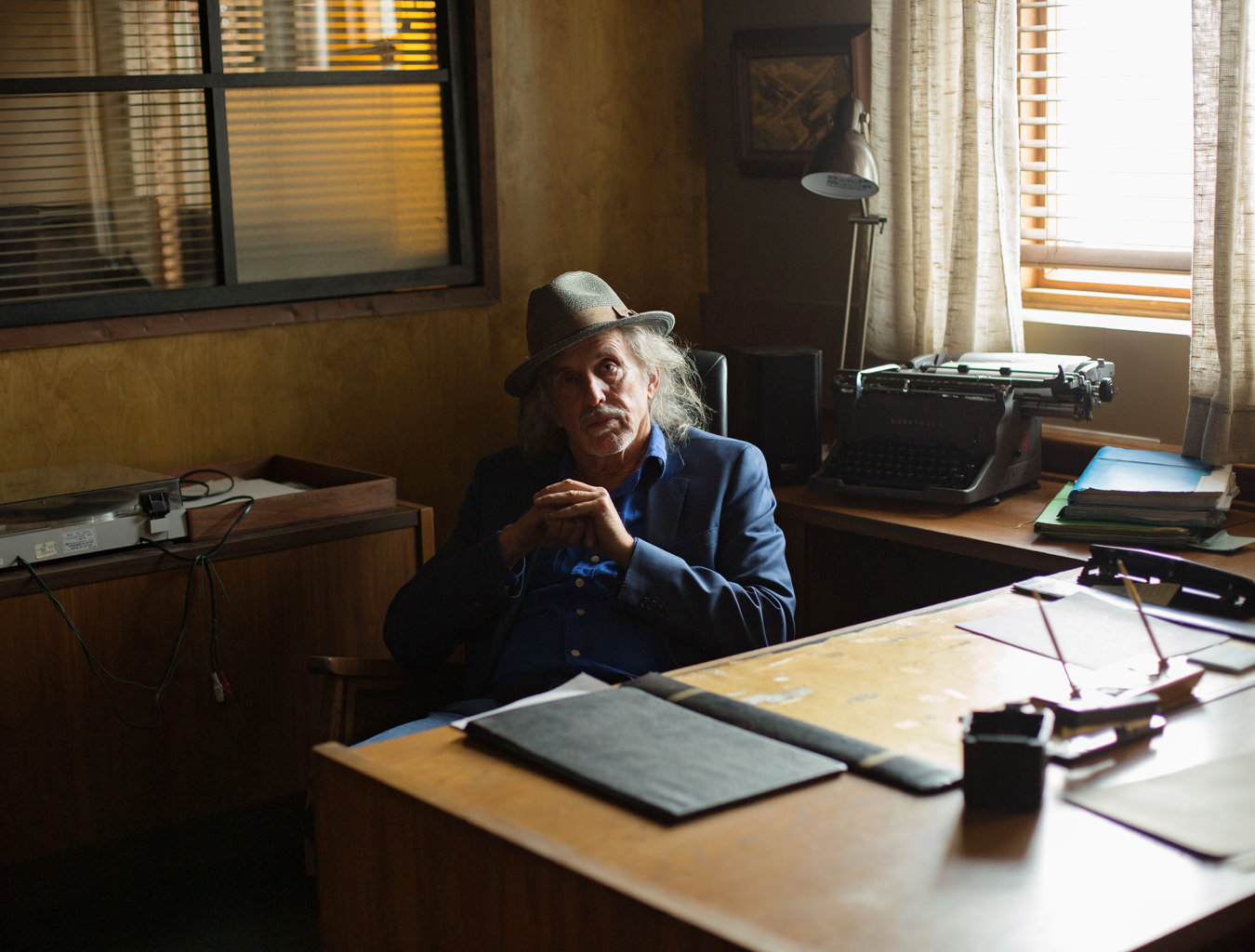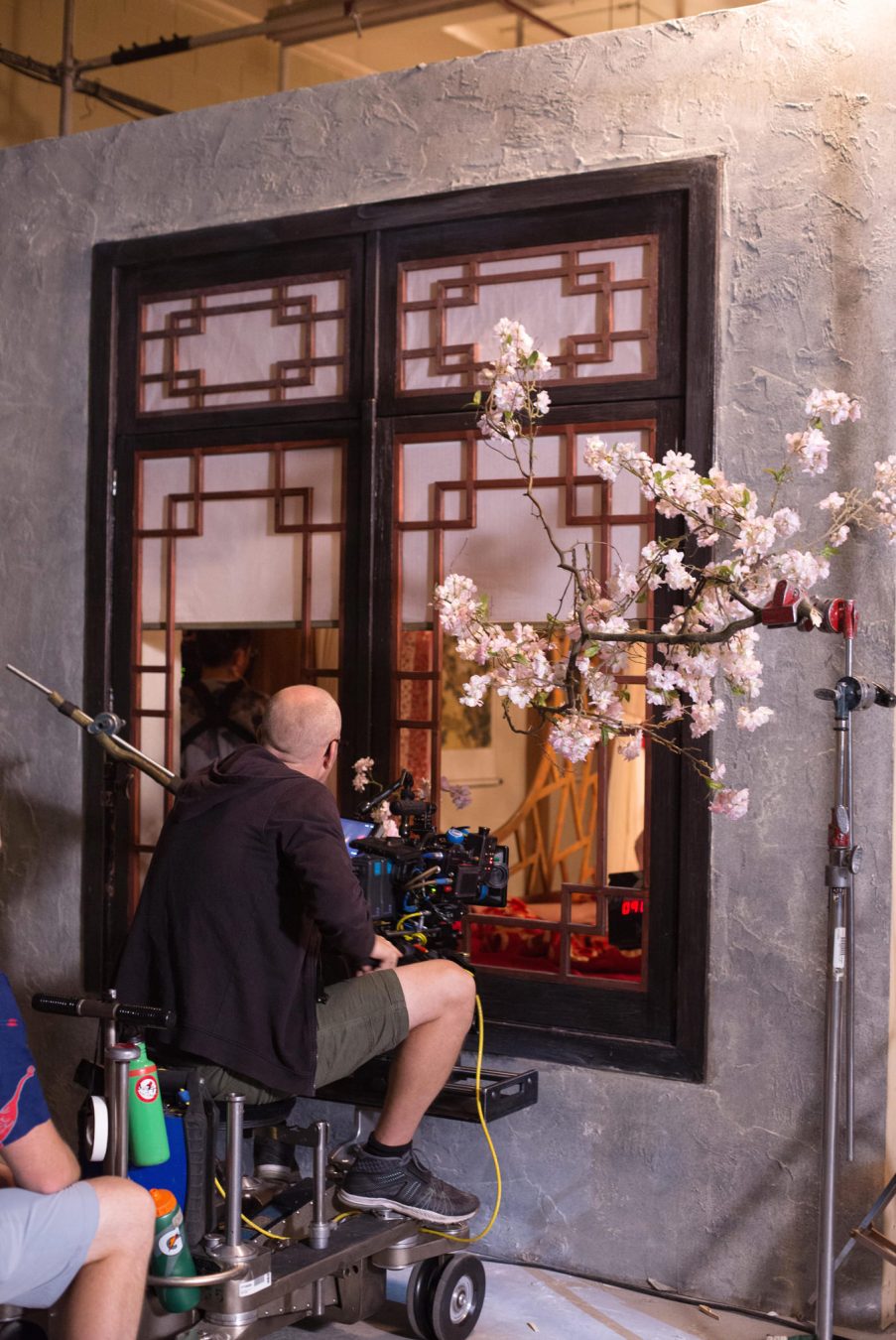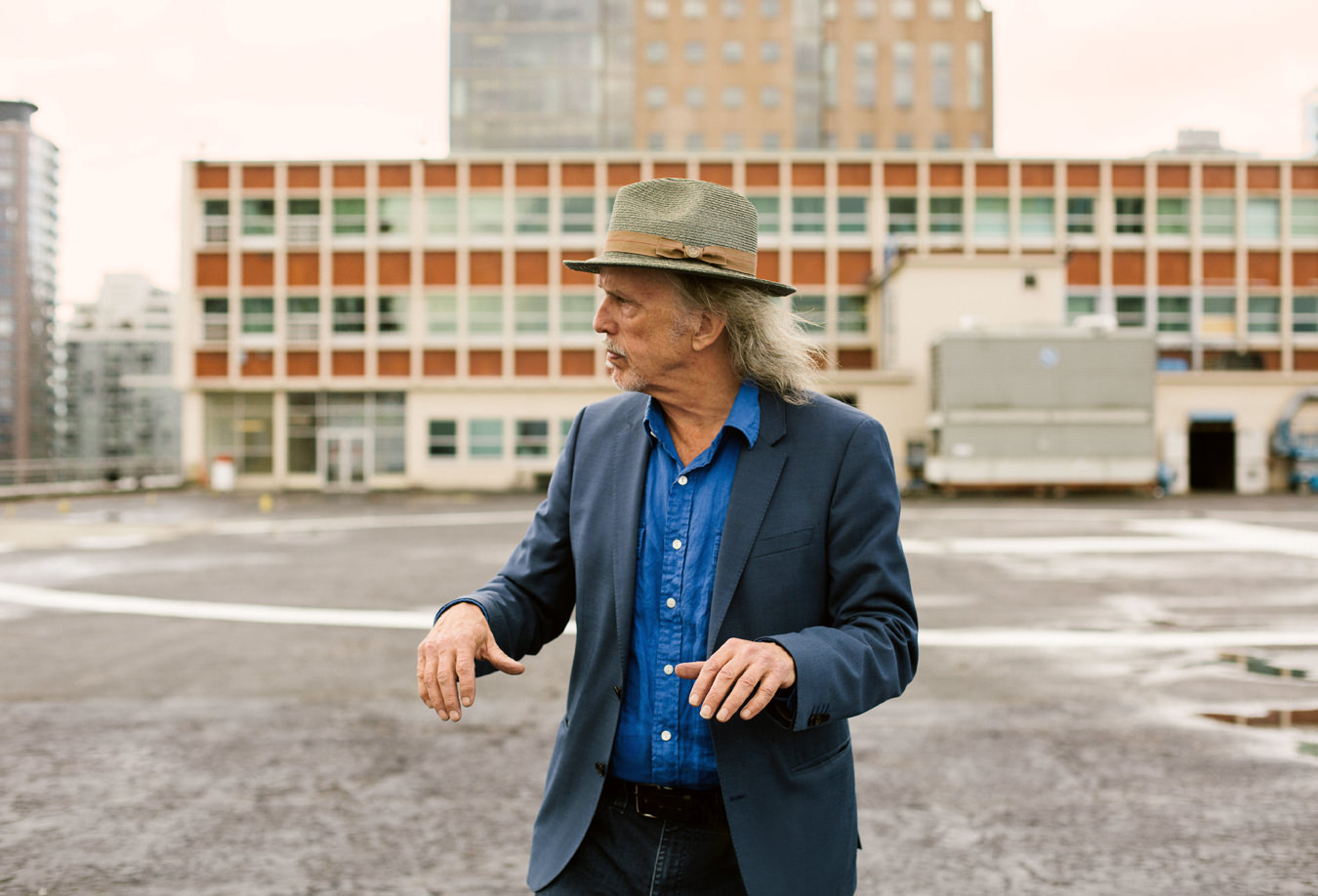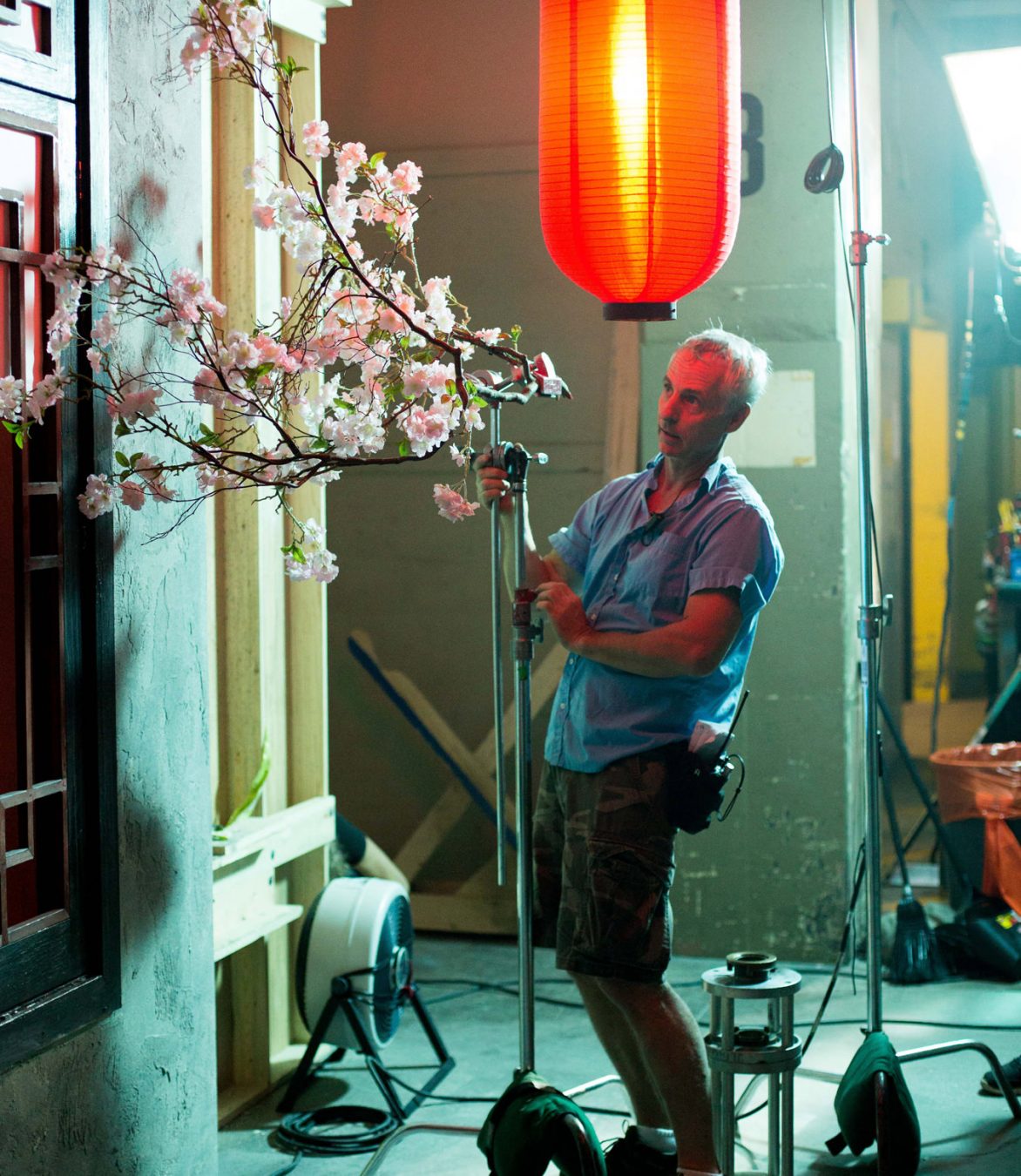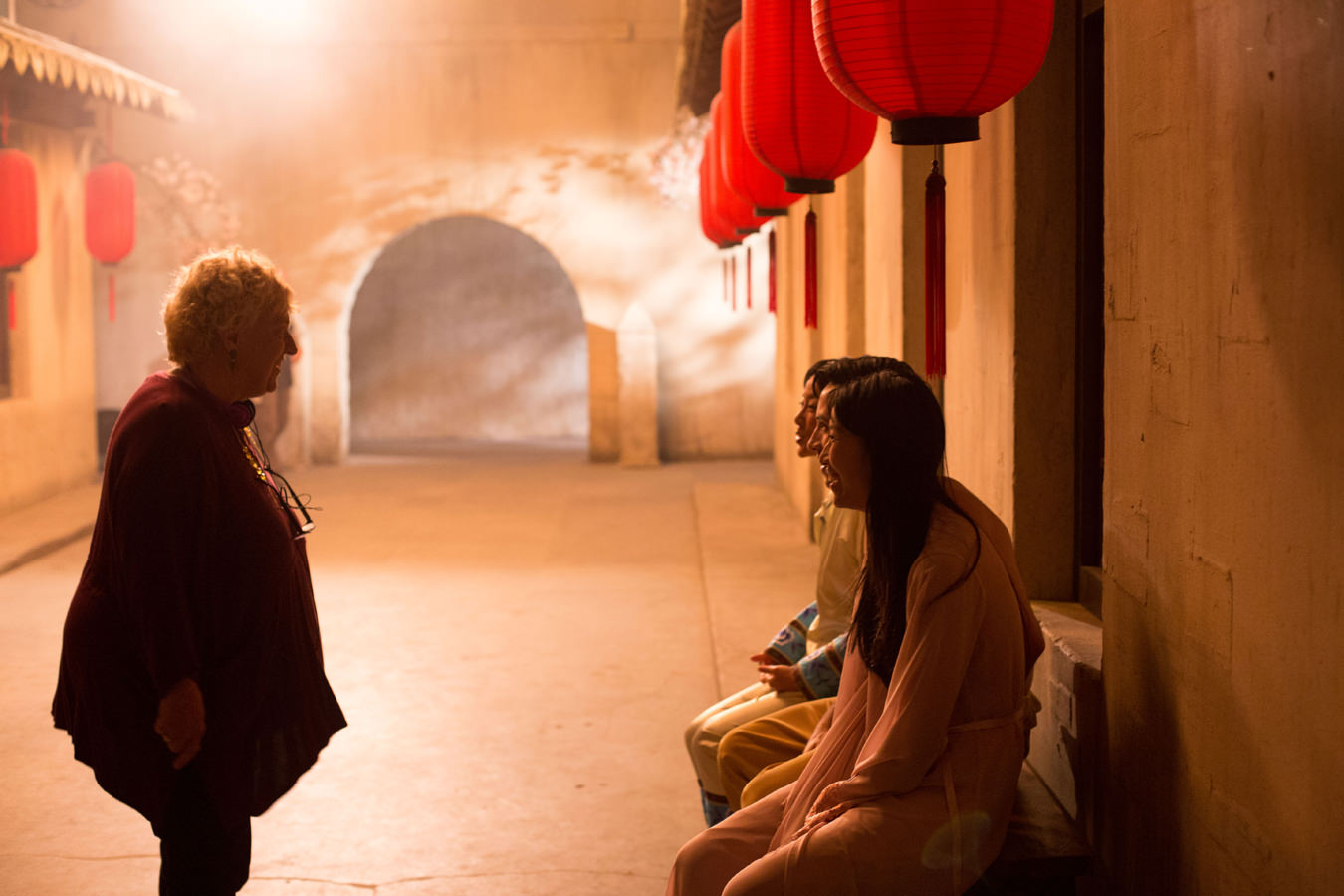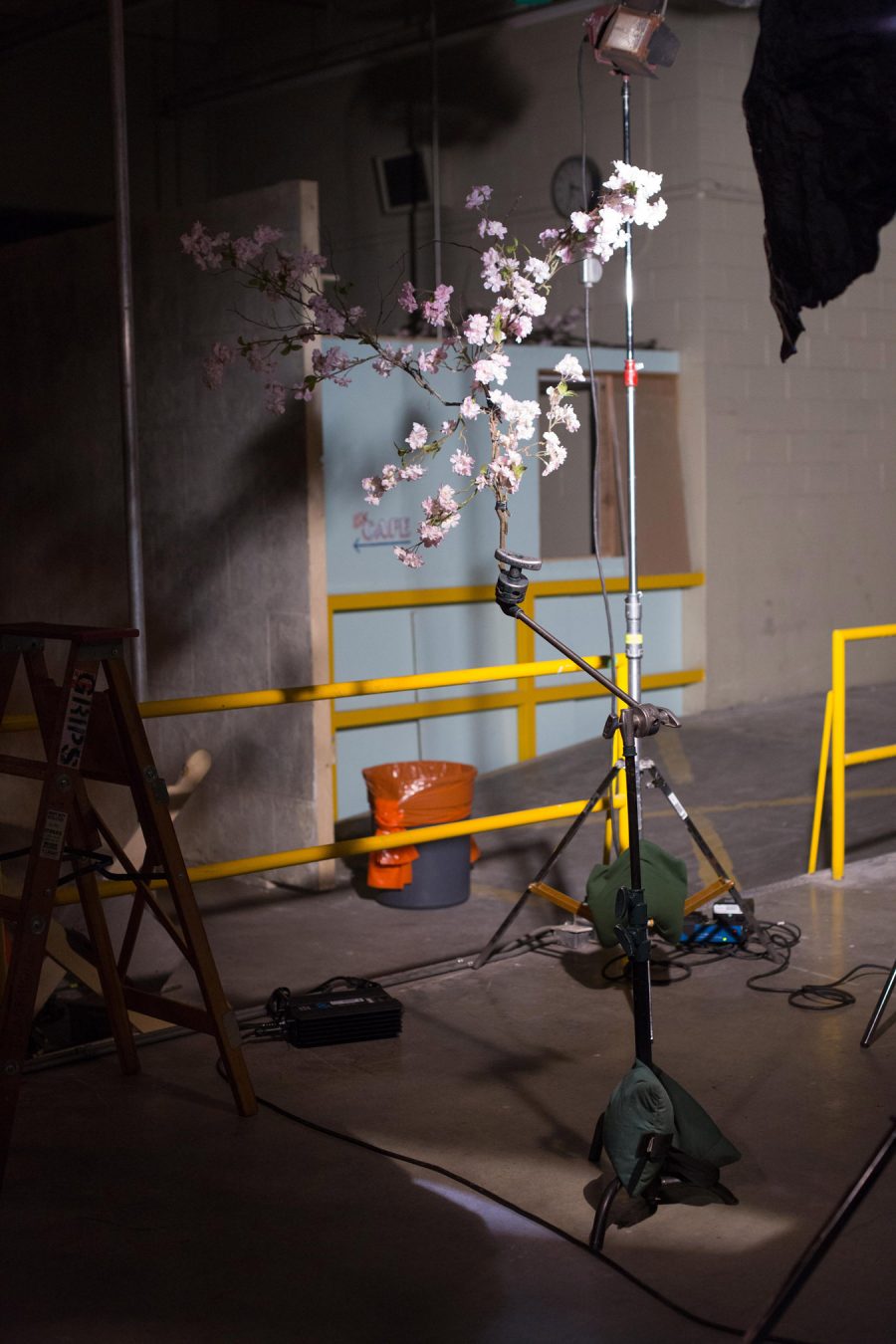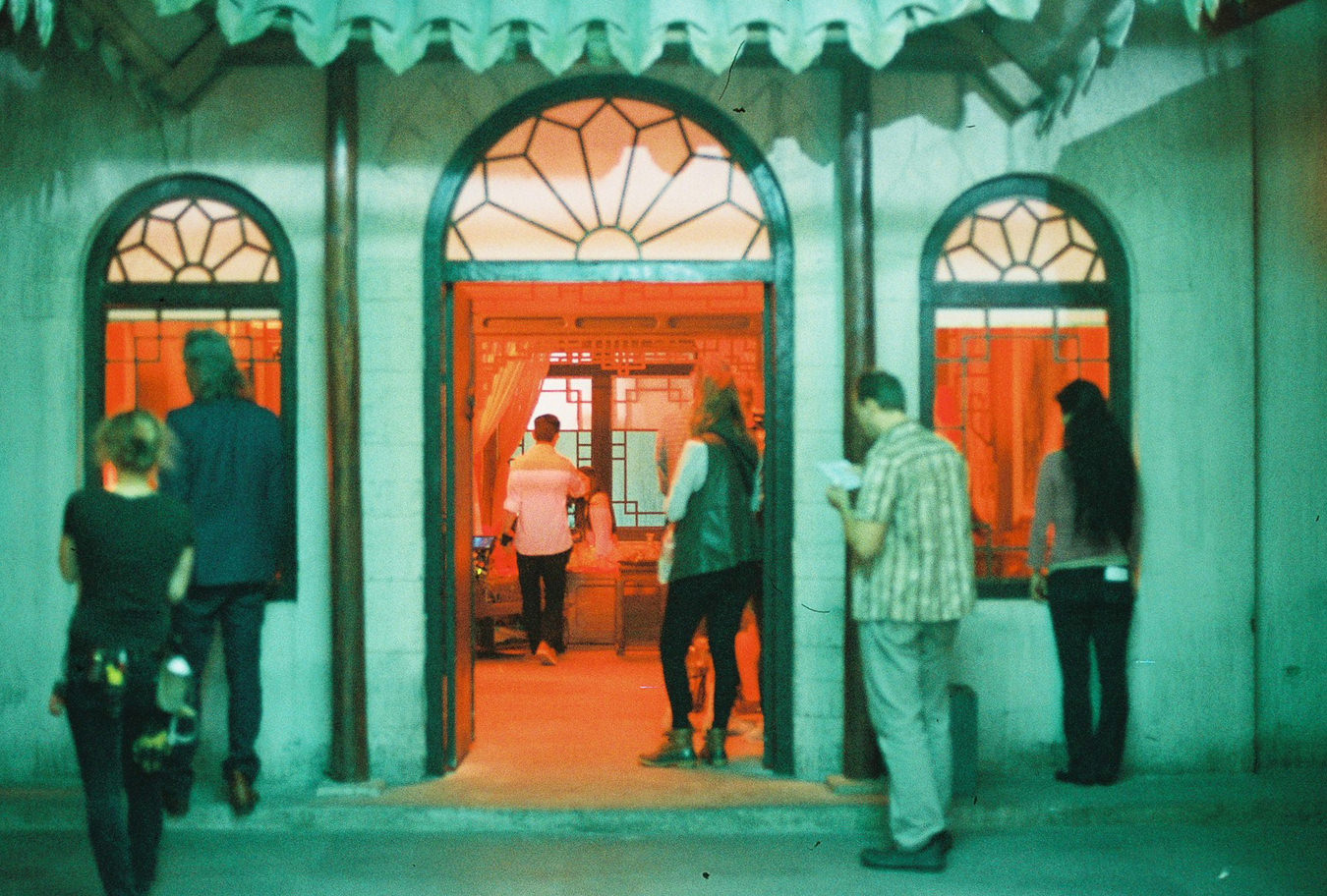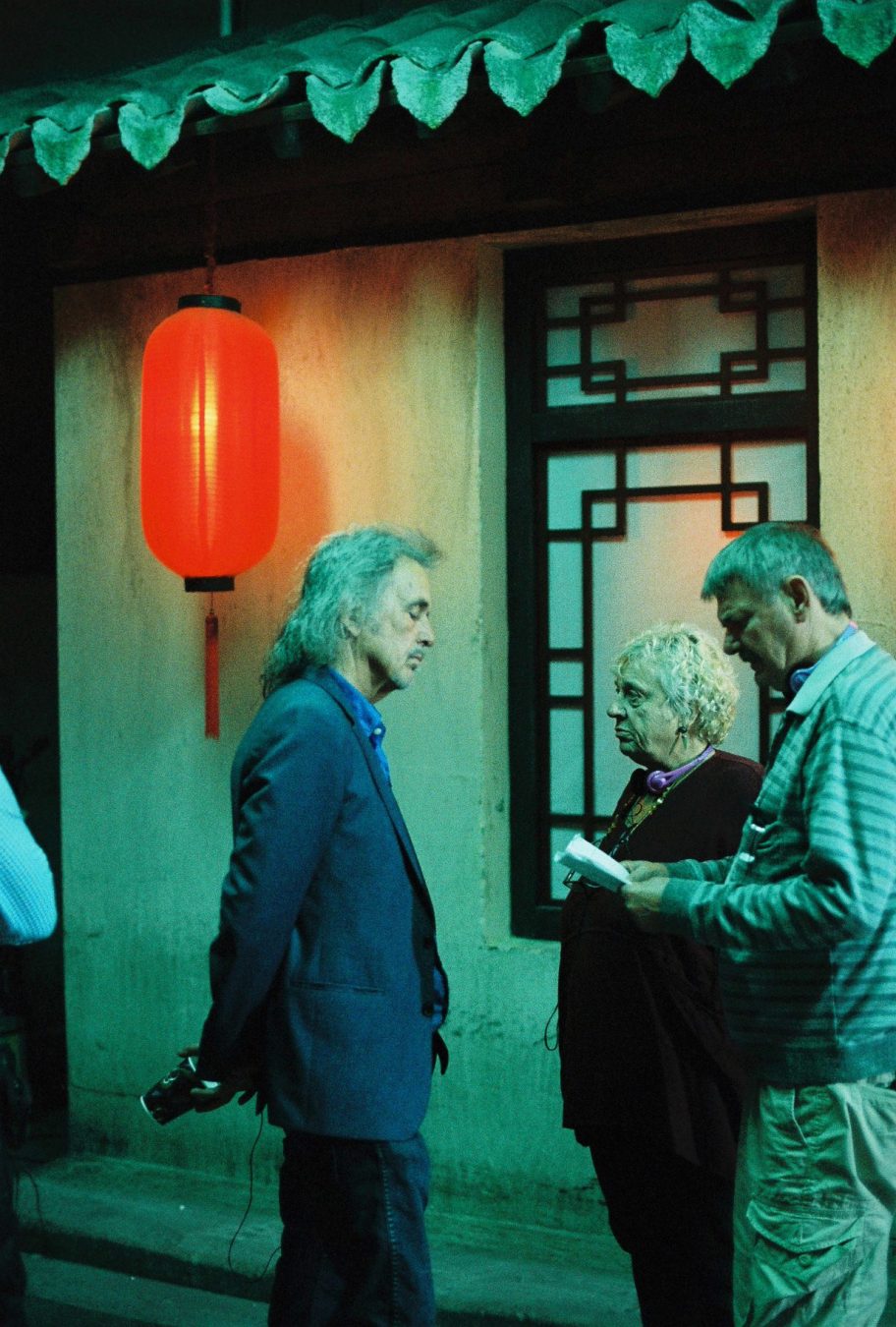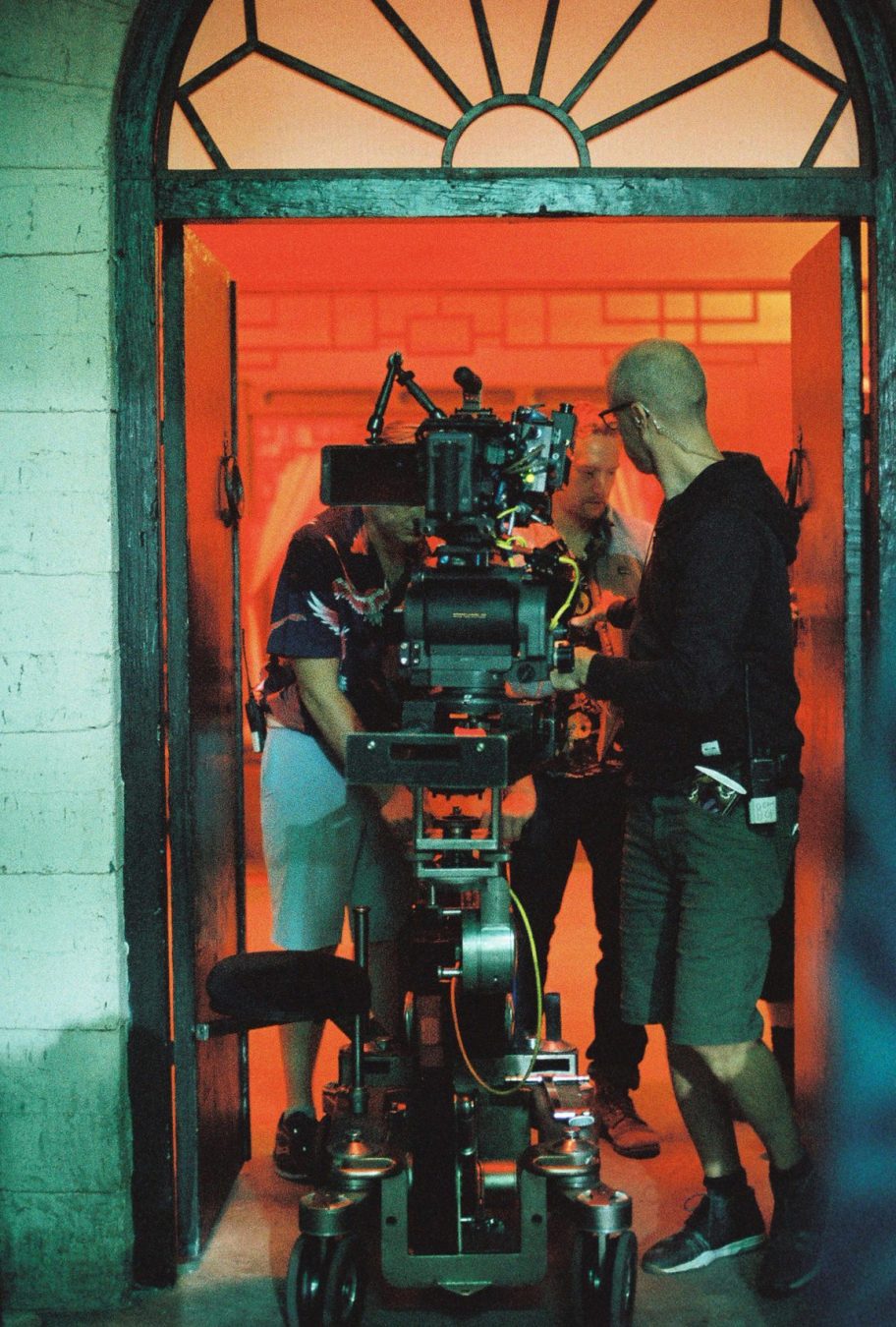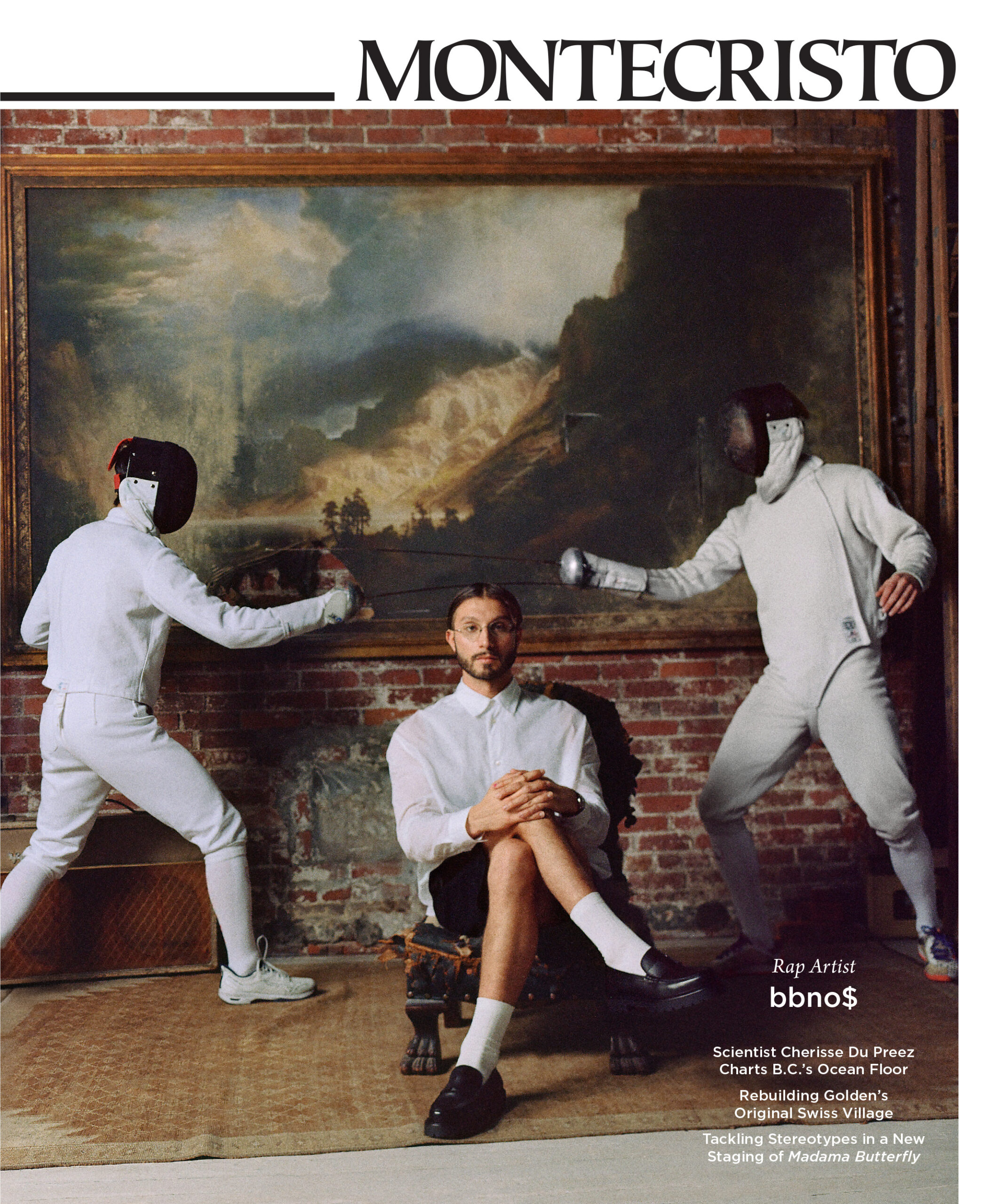Chris Haddock putters around the set of his television show The Romeo Section, shadowing the director, suggesting little edits, but always on the sidelines, hovering just out of the camera’s eye. A paper cup of black coffee is glued to his hand, and he is dressed in a blazer, collared shirt, and dark jeans of which one pant leg is accidentally tucked into the back of his boot. His long, thin grey hair wisps behind him as he moseys over to an ornate couch on the set of a bedroom, and he takes a seat, stretches out his arms across the back. He is comfortable here, as he should be—he is the mighty showrunner, the preacher of Canadian television, and the set is his holy church.
“Figs are up for grabs!” he says, having been given confirmation that the scene has wrapped. He gets up from the couch and reaches towards a prop tray of fruit, grabs a fig. It’s the real thing, and he bites into its soft flesh.
He is comfortable here, as he should be—he is the mighty showrunner, the preacher of Canadian television, and the set is his holy church.
“I’ve fought to be recognized as the author,” Haddock says, now seated in his director’s chair behind a crew monitor, in reference to being the brains behind his shows’ storylines. “If you don’t, everyone else will take it.” He speaks in rapid fire, only ceasing when the director yells the cast to action on the next scene, although sometimes even then he just drops his voice to an almost indiscernible whisper and keeps talking. He has a lot to say, certainly, as a true television veteran and nationally celebrated visionary. Haddock, who got his start working on the likes of MacGyver, first became known for his beloved Da Vinci’s Inquest, which ran on the CBC for seven seasons beginning in 1998 and was applauded for not only filming in Vancouver, but for having the city play itself; he then created the cult favourite although short-lived Intelligence, also a CBC production, and afterwards moved to Brooklyn to spend a year on the Martin Scorsese-produced HBO drama Boardwalk Empire. Now the Vancouver native is back on home soil (and home network, as it were, considering the YVR-based Romeo is also a CBC show), today filming its second season inside the former Canada Post building in the heart of downtown. Starring Andrew Airlie (whose credits include Motive and The Killing) and Juan Riedinger (Narcos), The Romeo Section is a spy thriller following an intelligence operation that uses sex to extract information and infiltrate the drug trade. Sex and drugs allowed on the CBC? Perhaps only for someone like Haddock.
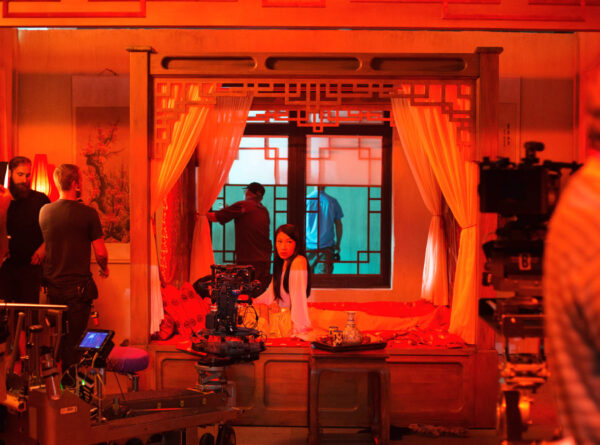
“I think for a lot of industries in Canada there is a very low glass ceiling where you can’t really progress,” he says, including television and film. Haddock references the “Canadian ghetto,” where he says a lot of locally-made television ends up: as in, not seen by many, preferred by even less. “Why am I here? Because I really enjoy working with a team that I’ve worked with for a long time,” he says of Canada. “The other thing is just opportunity. I had a nice long run here.” Working in Vancouver specifically means he can identify areas of town that are perfect for a given scene, and choose neighbourhoods where certain moments would take place in real life. “A lot of people come up here and say, ‘Wow, you’ve got the best job in the world: you don’t have to live in LA and you have total creative control,’” Haddock says. “I get to work in my hometown, go home, and sleep in my own bed.”
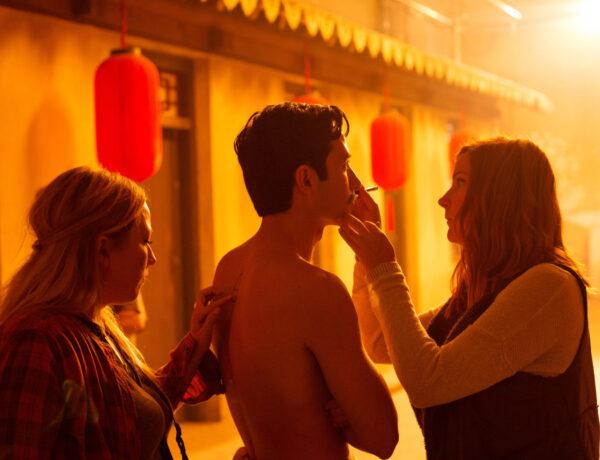
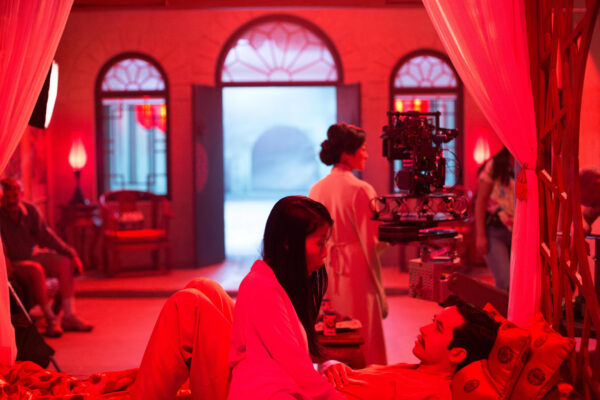
Maybe he prefers to be a big fish in a little pond, or maybe he just hasn’t found clearer waters worth jumping for. He does allude to the possibility of working internationally in the near future, but as he knows with Intelligence, which was cancelled after two seasons, it’s impossible to predict how anything will go. “You never know, when you roll the dice, whether the show’s going to last; it could be five years or two months,” Haddock says. “You can get cancelled quickly. It’s a competitive environment now.” It is interesting that Haddock works in an industry that is going through a popularity renaissance, with television arguably becoming more cool than its big-screen counterpart. “All the biggest filmmakers are lined up at HBO and Amazon and AMC to make shows,” he says. “It’s good, it’s thriving. But it is a very competitive world.” That truth could easily anger Haddock, as someone who has been in the television trenches since the days long before Netflix, but instead he is just happy to see his world grow. “I think it’s great, I’m excited about it,” he says, coffee cup still in hand. “I’ll probably keep working until I drop.” Haddock is tireless, a man with self-diagnosed “creative ADD”, a beloved creator.
The episode’s director (and legend in her own right) Anne Wheeler calls action again, and Haddock turns his attention to the monitor. The scene begins and Haddock leans intently forward, breaking his gaze only to turn back and whisper, “This is going to be good.”
Buy your copy of our Spring 2017 issue.
